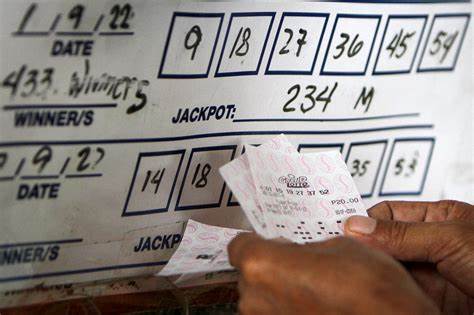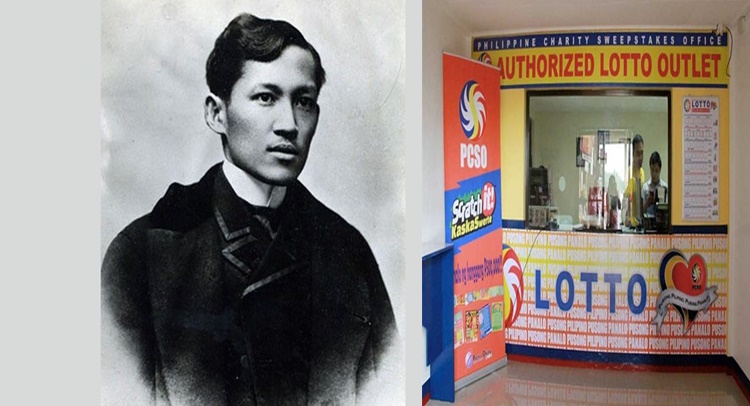Purchase Your Rizal Lottery Ticket Easily at No1Jili
An Academic Analysis of the 1892 Rizal Lottery Winner: Historical, Economic, and Social Perspectives no1jili


Abstract
This article examines the historical event of the 1892 lottery win in Rizal, exploring its economic and social implications within the context of Philippine history. Emphasizing key concepts such as the lottery system, colonial-era socio-economic dynamics, and historical narratives, the study provides insights into the cultural impact of gambling in 19th-century Rizal. The analysis underscores how such events reflect broader themes of fortune, social mobility, and economic opportunity.
1. Introduction
The phenomenon of lottery winnings has long captivated public imagination and served as a lens for examining economic and social dynamics. The case of the 1892 lottery winner in Rizal, as reported in historical accounts, offers a unique perspective on the interplay between chance, fortune, and socio-economic change during a pivotal period in Philippine history. This article provides an academic analysis of the event, situating it within its historical context and exploring its broader implications for understanding lottery systems and their impact on society.
2. Historical Context and Background
2.1 The Socio-Economic Landscape of 19th-Century Rizal
In 1892, the province of Rizal was characterized by significant socio-economic transformations amid a colonial setting. Economic opportunities and uncertainties were closely intertwined with emerging financial instruments, including lottery systems, which were introduced as a means of generating revenue and promoting public participation. The historical backdrop of Rizal during this period is essential for understanding how lottery practices were perceived and their potential to alter individual fortunes.
2.2 Introduction of Lottery Systems in the Philippines
Lottery systems were adopted in various regions as a form of public gambling and revenue generation. The adoption of such systems was influenced by both economic necessity and the desire to promote social engagement. In this context, the lottery became a mechanism for social mobility, offering participants the possibility of a transformative financial windfall. The case of the Rizal lottery winner in 1892 exemplifies this dual role of lottery systems as instruments of economic opportunity and social commentary.
3. Analysis of the 1892 Lottery Winner Event
3.1 Event Overview and Documentation
Historical records from 1892 detail the event of a lottery win in Rizal, marking a significant moment in the region’s history. The event is documented not only as a personal triumph but also as an instance that encapsulates the broader cultural and economic sentiments of the era. Emphasis on the term Rizal lottery winner 1892 reflects the importance of this event as a historical milestone and as a case study for examining the effects of chance on individual lives.
3.2 Economic Implications and Social Mobility
The substantial winnings from the lottery had far-reaching economic implications. For the winner, the financial windfall represented a potential avenue for improved social status and economic stability. On a broader scale, the event illustrated how lottery systems could serve as catalysts for social mobility, particularly in contexts where conventional economic opportunities were limited. This analysis considers the role of lotteries in redistributing wealth and influencing local economic structures.
3.3 Cultural and Psychological Impact
Beyond economic outcomes, the narrative of the lottery winner had a profound cultural and psychological impact on the community. It fostered a sense of hope and possibility, encouraging others to engage with the lottery system as a viable means of achieving prosperity. The event also contributed to the mythology surrounding luck and fortune, themes that have long been central to the cultural discourse on gambling.
4. Broader Implications for Lottery Systems and Gambling Practices
4.1 The Role of Lottery Systems in Colonial Economies
Lottery systems in colonial contexts were often introduced as a pragmatic solution to fiscal challenges while simultaneously promoting public engagement. The 1892 lottery event in Rizal exemplifies how such systems could influence economic behavior and public perceptions of wealth. This analysis underscores the dual role of lotteries as both economic instruments and social phenomena.
4.2 Lessons for Contemporary Gambling Practices
Examining historical events such as the Rizal lottery win offers valuable lessons for contemporary gambling practices. It highlights the enduring appeal of lottery systems and the complex interplay between chance, economic opportunity, and social mobility. Understanding these historical dynamics can inform current debates on gambling regulation, responsible gaming, and economic policy in modern digital contexts.
5. Conclusion
The 1892 lottery win in Rizal serves as a compelling case study in the historical analysis of lottery systems and their socio-economic impact. By examining the event through economic, cultural, and regulatory lenses, this article demonstrates how lottery practices have long influenced individual fortunes and broader societal trends. The legacy of the Rizal lottery winner underscores the timeless nature of gambling as both an economic instrument and a cultural phenomenon.



